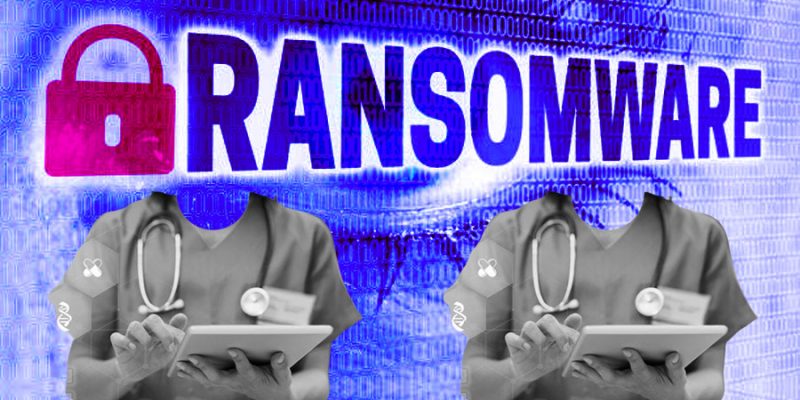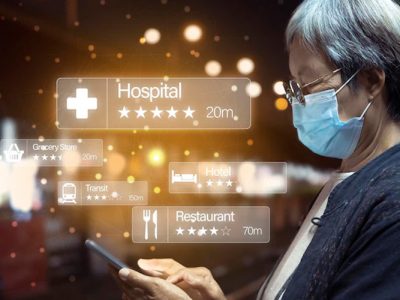
In recent years, ransomware has become a big concern for many businesses, notably those in the healthcare industry
Ransomware has been a major worry for many organizations in recent years, particularly those in the healthcare business. Cybercriminals are improving their methods and employing them to launch increasingly frequent and deadly attacks. In such a dangerous situation, maintaining continual alert and taking preventive measures is essential. Ransomware is a sort of computer virus that encrypts data and prevents it from being accessed unless a ransom is paid. Some attacks encrypt data directly, while others encrypt the victims’ screens. The crooks encrypt data and demand a ransom payment through the internet in exchange for the decryption key. Regardless matter the tactics utilized, the essential strategy remains the same. Cybercriminals gain control of their victims by denying them access to information they need and then demanding monetary compensation in return.
According to a recent report, ransomware assaults on healthcare organizations increased by 94% in 2021, and recovering systems after a data breach cost more than US$1.85 million. According to a recent analysis from cybersecurity firm Sophos, healthcare is the second most targeted industry by bad actors, after manufacturing. The worrying rise in ransomware assaults on healthcare systems, according to the poll, is also leading to an increase in healthcare providers accepting ransom demands. The analysis, titled “The State of Ransomware in Healthcare 2022,” found a 94% rise in ransomware assaults on the healthcare organizations investigated. Healthcare organizations were hacked in 66 percent of cases in 2021, up from 34 percent the previous year. The research follows Verizon’s annual Data Breach Investigation Report, which noted an increase in more impactful ransomware operations and common cyber attempts targeting healthcare, as well as a spike in data releases by threat organizations.
Why is healthcare such a popular ransomware target?
Medical institutions confront greater dangers than companies in other professions, and this isn’t a coincidence. Cyber Criminals are attracted to the value and sensitivity of patient data, and a convergence of technology and cultural difficulties within the business makes medical institutions particularly vulnerable. In the view of tech-savvy thieves, these characteristics combine to render hospitals and other medical institutions virtual sitting ducks. Hospitals have a closer bond with their patients than most businesses do with their customers. Hospitals collect and maintain a wide range of personal data, most of it sensitive and private, to offer effective treatment. Confidential information is extremely useful to hackers and criminals. Such sensitive information not only fetches a premium price on the black market but also provides criminals to ask for a higher ransom.
The healthcare sector is particularly susceptible, thanks to huge computer systems and personnel who are preoccupied with other issues. Medical technology gives weak places for hackers to attack, and the requirement for staff to access data remotely adds to the risk. Hospital employees are typically too preoccupied with providing for their patients to think about cybersecurity. It’s tougher to think twice about reading a questionable email when time is of the essence and someone in the other room is calling for assistance. Workers are also more likely to value efficiency above digital security, making structural changes less likely to be accepted.There are other financial problems to consider in addition to the obvious hazards. In the medical industry, funding is typically scarce, and many providers are battling to stay afloat. Regardless, businesses should recognize that paying for protection is preferable to becoming the victim of a cyberattack. A busy medical institution may be crippled by a single phishing email, and the ransom will be far more than the security measures would have cost.
According to Sophos’ research, the number of provider organizations that paid ransoms after being hacked quadrupled last year. Healthcare respondents acknowledged paying the ransom at a rate of 61 percent, which is 15% more than other industries. “The biggest growth in the frequency and complexity of healthcare assaults compared to all other sectors is a plausible cause for their high proclivity to pay and overcome their weak readiness in dealing with such attacks,” Shier added. Health-care institutions in the United States have been targeted by ransomware attacks.
In the year 2020, 92 ransomware attacks hit over 600 clinics, hospitals, and organizations, affecting over 18 million patient records. The cost of these assaults is estimated to be almost $21 billion. The assault on Blackbaud, a cloud software company, was one of the 92 strikes. So far, this assault has been reported to have hit 100 US healthcare companies, impacting about 12.3 million patient records. Ransomware attacks have been a major source of concern for hospitals all around the world since 2016. They disable critical systems and prevent hospitals from obtaining vital patient data until the hacker is paid a fee (or the ransomware is removed by IT specialists).
An increasing trend has been double-extortion efforts, in which hackers not only lock computers with a message demanding a ransom but also contact victims with proof of the data gathered. By putting stolen material on their websites, corporations are put under further pressure to pay the ransom. Beacon Health Solutions, Wilmington Surgical Associates, and Riverside Community Care are just a few examples. Healthcare organizations must take a cautious, proactive strategy to safeguard their company from this constant threat. Developing a precautionary mindset, backing up your data, and employing cutting-edge machine-intelligence email security can all help you keep the bad guys away.



















